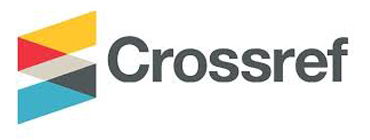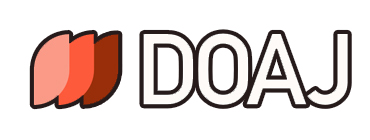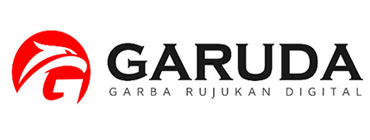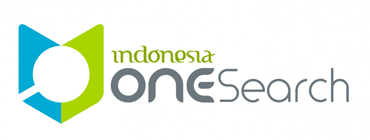THE ROLE OF RELIGIOUS EDUCATION AND UTILIZATION DIGITAL TECHNOLOGY FOR IMPROVING THE QUALITY IN SUSTAINABILITY MADRASA
Abstract
This study aims to reveal the role of religious education and the use of digital technology in improving the quality of sustainability Madrasa in Indonesia. The research method used is the study of literature. Previous studies only focused on the challenges and role of Islamic education in the digitalization era. The novelty of the research lies in the collaboration of Islamic education theory and new media theory in particular the use of digital technology in improving the quality of Madrasas sustainability in Indonesia. It is essential to know how contemporary Islamic education and digital technology can be developed as crucial factors in Madrasas' sustainability to face challenges in the current digital Era. The results of the study explained that the strengths, as well as the characteristics possessed by Madrasas, are the values of Islamic religiosity that can create a foundation of good character and behavior for the next generation of the nation. To face competition, improve quality, and survive in the world of education, Madrasas must be able to make the best use of digital technology in Madrasah governance, create digital libraries, improve the performance of teachers who are technology literate, and the application of digital technology in learning practices in Madrasa Ibtidaiyah (MI ), Madrasa Tsanawiyah (MTS), and Madrasa Aliyah (MA).
Full Text:
PDFReferences
Anderson, Susan E., and Rebecca S. Putman. (2020). "Special education teachers’ experience, confidence, beliefs, and knowledge about integrating technology." Journal of Special Education Technology 35, no. 1: 37-50.
Bayraktar, Muhammet Mustafa. (2020)."Evaluation of Studies in Technology in Religious Education Published in Turkey." In Enriching Teaching and Learning Environments With Contemporary Technologies, pp. 241-257. IGI Global.
Badan Pusat Statistik (BPS). (2017). Potret Pendidikan Indonesia: Statistik Pendidikan 2017 [A Portrait of Indonesian Education: Education Statistics 2017]. Jakarta: Badan Pusat Statistik.
Budiman, Haris. (2017). "Peran teknologi informasi dan komunikasi dalam pendidikan [The role of information and communication technology in education]." Al-Tadzkiyyah: Jurnal Pendidikan Islam 8, no. 1: 31-43.
Bobby DePorter. (1999). Quantum Learning. Jakarta: Kaifa.
Cambridge International. Org., Global Education Census Survey Report. (2018). https://www.cambridgeinternational.org/Images/514611-global-education-census-survey-report.pdf
Departemen Agama Republik Indonesia (Depag RI). (2005). Pendidikan Islam dan Pendidikan Nasional, Paradigma Baru [Islamic Education and National Education, New Paradigm]. Jakarta: Dirjen Agama Islam.
Departemen Agama Republik Indonesia (Depag RI). (2004). Sejarah Pendidikan Islam [History of Islamic Education]. Jakarta: Raja Grafindo Persada.
Fadjar, Malik. (1998). Madrasah dan Tantangan Modernitas. Bandung: Mizan.
Furat, Murat, and İlyas Eker. (2014). "Computer‐aided experimental modeling of a real system using graphical analysis of a step response data." Computer Applications in Engineering Education 22, no. 4: 571-582.
Harahap, Lelyna. (2019). "Peran teknologi informasi dan komunikasi dalam pendidikan [The role of information and communication technology in education].": 375-381.
Husaini. (2014). Pemanfaatan Teknologi Informasi dalam Bidang Pendidikan (E-education) [Utilization of Information Technology in the Field of Education], Jurnal Mikrotik 2.1 pp. 1-5.
Karel A. Stenbrink. (1991). Pesantren, Madrasah, Sekolah [Pesantren, Madrasahs, School]. Jakarta: LP3ES.
Landri, Paolo. Digital Governance of Education: Technology, standards and Europeanization of education. Bloomsbury Publishing, (2018).
Mukhtar, Maksum . (2001). Sejarah Pendidikan Islam. Logos Wacana Ilmu [History of Islamic Education. Logos of Science Discourse], Jakarta.
Mattar, Joao. (2018). "Constructivism and connectivism in education technology: Active, situated, authentic, experiential, and anchored learning." RIED. Revista Iberoamericana de Educación a Distancia 21, no. 2.
Mulyana, Deddy. (2004). Metodologi Penelitian Kualitatif, Paradigma Baru Ilmu Komunikasi dan Ilmu Sosial Lainnya [Qualitative Research Methodology, New Paradigm of Communication Studies and Other Social Sciences], Bandung: PT Remaja Rodakarya.
Murgatroyd, Stephen dan Morgan, Colin. (1994). Total Quality Management and The School. Buckingham: Open University Press.
Nawawi, Haidar (1983). Perundang-undangan Pendidikan [Educational legislation]. Jakarta: Ghalia Indonesia.
Nurdyansyah, Nurdyansyah, Pandi Rais, and Qorirotul Aini. (2017). "The Role of Education Technology in Mathematic of Third Grade Students in MI Ma’arif Pademonegoro Sukodono." Madrosatuna: Journal of Islamic Elementary School 1, no. 1: 37-46.
Purbo, Onno W. (2002). Teknologi e-Learning. Jakarta: Elex Media Komputindo.
Radhy, Zainb Hassan. (2019). "Application of Multiply Regression Linear Model and New Technology Method in Estimating Learning and Education of Students." International Electronic Journal of Mathematics Education 14, no. 1: 87-90.
Rais, M.A. (1998). Al Islam dan Iptek [Al Islam and Science and Technology], Jakarta, Perumus Fakultas Teknik UMJ.
Sarker, Md Nazirul Islam, Min Wu, Qian Cao, GM Monirul Alam, and Dan Li. (2019). "Leveraging Digital Technology for Better Learning and Education: A Systematic Literature Review." International Journal of Information and Education Technology 9, no. 7: 453-461.
Suhirman, Suhirman. (2015). "Peningkatan Mutu Madrasah Berkelanjutan (Sustainability) Berbasis Kinerja Guru [Improving the Quality of Sustainable Madrasas (Sustainability) Based on Teacher Performance]." Biota 8, no. 2: 157-172.
Suyanto dan M.S. Abbas. (2001). Wajah dan Dinamika Pendidikan Anak Bangsa [The Face and Dynamics of National Education], Yogyakarta: Adicita Karya Nusa.
Singh, Meenakshi. (2020). "Impact of Technology in Indian Education System." Advance and Innovative Research: 349.
Stauter, Donna W., Judy Prehn, Megan Peters, Lynn M. Jeffries, Lorraine Sylvester, Hongwu Wang, and Carol Dionne. (2019). "Assistive Technology for Literacy in Students With Physical Disabilities: A Systematic Review." Journal of Special Education Technology 34, no. 4: 284-292.
Thomas, Susan. (2016). "Future Ready Learning: Reimagining the Role of Technology in Education. 2016 National Education Technology Plan." Office of Educational Technology, US Department of Education.
Zamroni, M. Imam, and Lies Rahayu WF. (2012). "Pengembangan Madrasah Berparadigma Pembangunan Berkelanjutan [Madrasahs Development Paradigm Sustainable Development]." Jurnal Kawistara: Jurnal Ilmiah Sosial dan Humaniora 2, no. 1.
DOI: http://dx.doi.org/10.30829/tar.v27i1.675
Refbacks
- There are currently no refbacks.

Jurnal Tarbiyah by UIN Sumatera Utara Medan is licensed under a Creative Commons Attribution-NonCommercial-ShareAlike 4.0 International License.
Based on a work at http://jurnaltarbiyah.uinsu.ac.id/index.php/tarbiyah.
Permissions beyond the scope of this license may be available at http://jurnaltarbiyah.uinsu.ac.id/index.php/tarbiyah/about/submissions#copyrightNotice.
















